
A remarkable archive kept by the mother of the world’s first test tube baby has been revealed to mark the 40th anniversary of her birth.
Lesley Brown’s collection of letters, photographs, films, newspapers, magazines and mementos from trips abroad can now be viewed in Bristol.
There are also appointment cards and correspondence from scientists and doctors, gifts given to mark the birth, and media contracts in the archive.
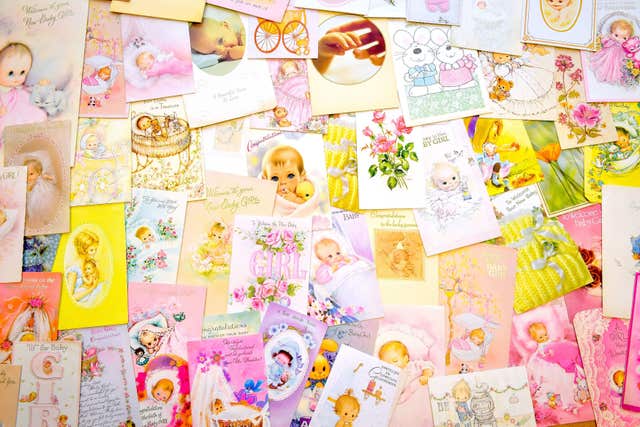
One letter from Dr Robert Edwards in December 1977 reads: “Just a short note to let you know that the early results on your blood and urine samples are very encouraging, and indicate that you might be in early pregnancy.
“So please take things quietly – no skiing, climbing, or anything too strenuous including Xmas shopping!”
Mrs Brown and husband John, from the city, were the first people to successfully undergo in vitro fertilisation (IVF).
Their daughter Louise Brown, who turns 40 on Wednesday, was born at Oldham General Hospital on July 25 1978.
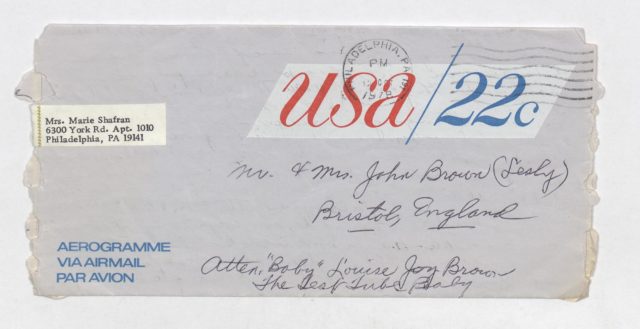
The couple were sent hundreds of congratulations cards, as well as heartbreaking letters from women struggling to conceive.
Mrs Brown also kept correspondence from those criticising IVF, many on religious grounds, as well as newspaper and magazine articles relating to her family.
Following her death in 2012, her daughter discovered boxes of material, and a scrapbook of memories including a copy of her birth certificate, tucked in a wardrobe at the family home.
She donated the collection to Bristol Archives, who received a grant from the Wellcome Trust to catalogue and conserve it, in 2016.
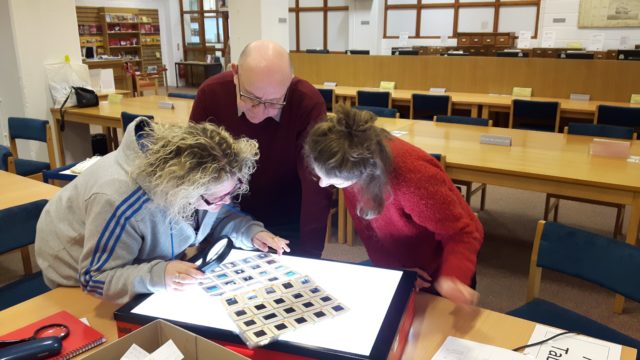
Parts of the Lesley Brown Collection will be on display at the Science Museum, with items also on show at Bristol’s M Shed museum from December.
Louise Brown, now herself a mother-of-two living in Bristol, said: “My mum Lesley Brown kept everything concerned with my birth from the appointment cards when she was trying for a baby right through to all the correspondence from journalists and people all over the world following my birth.
“Now that IVF is an established worldwide technique I thought it was important that people get a true view of how it all started from our family point of view.
“Mum was a proud Bristolian so it was right to deposit the material in our home city archive.”
She said her mother would be “amazed” at how IVF had grown worldwide in the past 40 years.
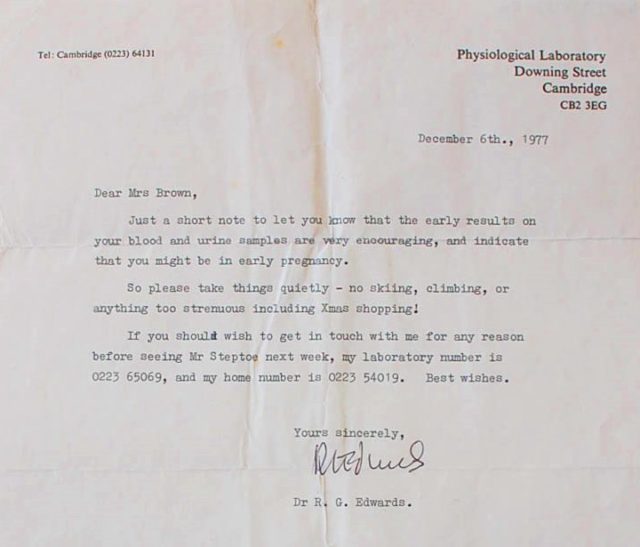
Of the hundreds of cards received by the family, many were addressed simply to “Lesley and John Brown, parents of the world’s first test tube baby”.
Many women wrote of how the birth had given them hope and of their desire to become a mother.
One wrote: “Reading the paper this morning I saw your marvellous story – just had to write to you and say how happy I am for you and your husband!
“I know only too well the heartache and longing for a baby of one’s own and it doesn’t happen.
“However, I am far beyond the child bearing age but will never forget the longing I had and the tears I cried. It must be a wonderful experience to reproduce.”
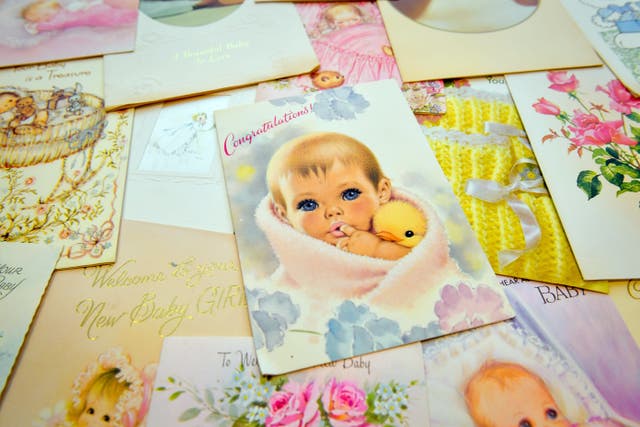
In the September after the birth, another wrote: “The news of your beautiful Louise was the most wonderful I have ever heard in my life.
“I felt absolutely no bitterness or envy (I have hopelessly blocked fallopian tubes too), just a tremendous joy and delight for you both.
“This was followed, of course, by a great hope that now, maybe, there was a chance for us to have a baby of our own too.”
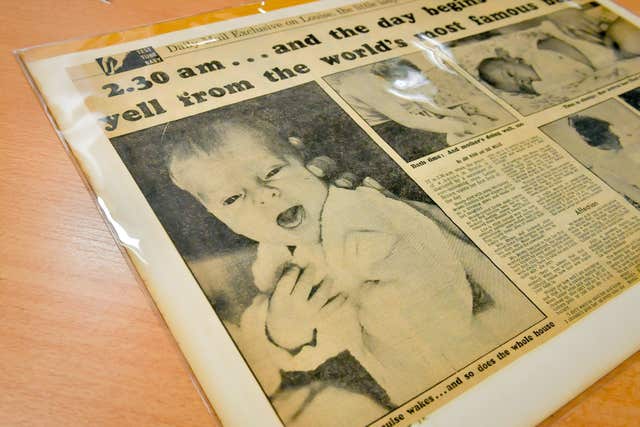
Mrs Brown was contacted by women who had also undergone treatment with gynaecologist Patrick Steptoe.
One said: “Hope you didn’t mind us sending you this card, only we are so thrilled for you three as we were also patients of Mr Steptoe but for us we were unlucky but this has really made us feel as though there is more hope.”
Another sent a letter detailing how she had suffered a miscarriage in the months before Louise Brown was born.
“I didn’t write as I thought it might depress you and you had enough to worry about,” the woman wrote.
“I expect you are longing to get home and start leading a normal life again.
“I am looking forward to trying again and hope it won’t be too long before I have the opportunity.”
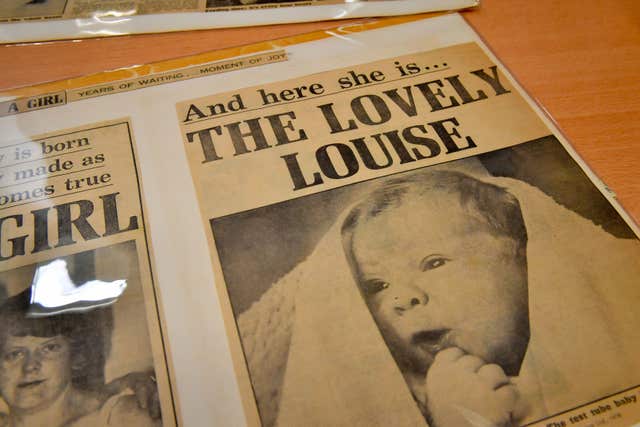
Chris Hassan, of the Wellcome Trust’s Humanities and Social Science team, said: “It was such an unprecedented event – it was like the moon landing.
“It is recorded in these letters that are from all over the world. This is an incredibly intimate collection and that is represented in its size and scale.”
The collection, split into numerous boxes, was repackaged and catalogued over a six-week period by a project archivist funded by the Wellcome Trust.
One of the more complicated tasks was removing sticky glue from Mrs Brown’s scrapbook and preserving the pages, which had newspaper articles from around the world stuck on them.
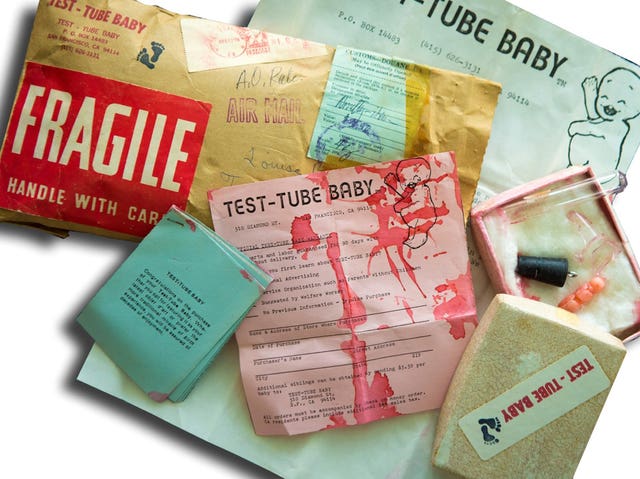
Louise Brown spent a morning with the team at the archives to identify people in photographs and add extra information about events.
Allie Dillon, city archivist at Bristol Archives, said: “We were really delighted to have Lesley’s papers so they could stay local.
“There is a lot of interest in them.
“It shows bio-medical history but is also a social collection because it demonstrates so many responses to the baby being born.”


Comments: Our rules
We want our comments to be a lively and valuable part of our community - a place where readers can debate and engage with the most important local issues. The ability to comment on our stories is a privilege, not a right, however, and that privilege may be withdrawn if it is abused or misused.
Please report any comments that break our rules.
Read the rules here